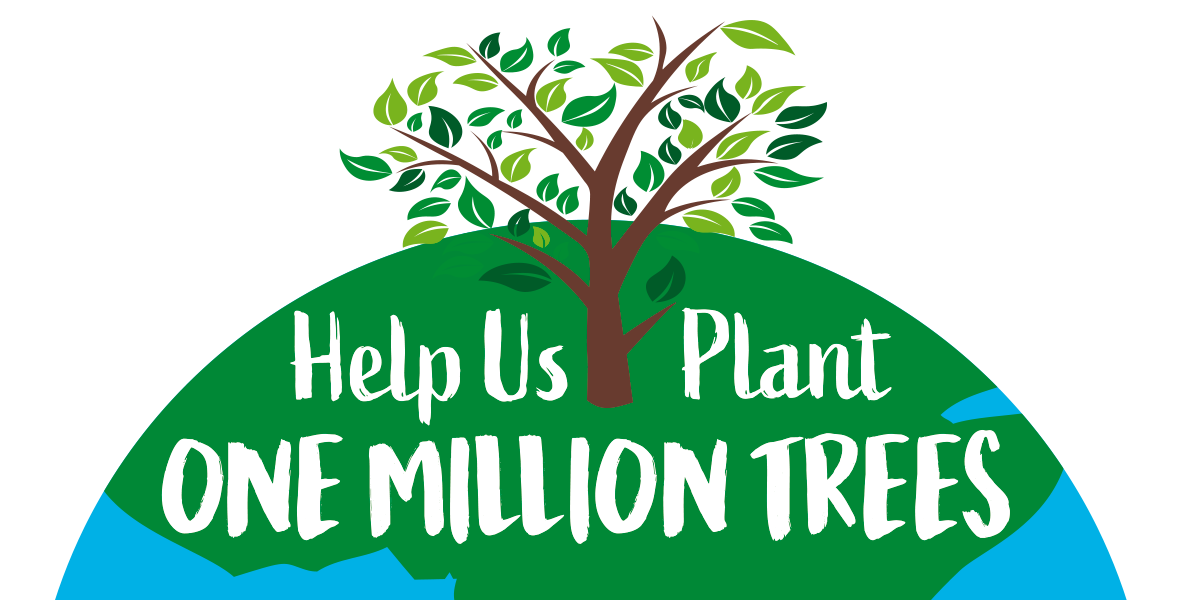
One Million Trees FAQ
If you help us to plant just one native tree in Ireland, we'll plant ten more for you in Africa. Together, lets plant more than one million trees this year.
See below for some frequently asked questions regarding the campaign.
For every £10 that is donated, we will plant one native tree in the UK, and 10 trees in Africa.
In the UK, trees will be planted in sites as identified by our local partners ‘Trees on the Land.’ These will include sports clubs, schools, community spaces and privately owned land.
In Africa, trees will be planted within development project areas where Self Help Africa is working. These will include fruit trees, trees that help to restore and rehabilitate land, and trees that provide food, fodder and fuel for households and communities.
You can find out more about the trees we will be planting by visiting our Tree Directory.
Trees are one of the most effective ways to remove harmful greenhouse carbon from the atmosphere.
Self Help Africa has always planted trees, which are part of the mix of agricultural activities on small farms in Africa. We plant trees to help to rehabilitate degraded land, to restore nitrogen and nutrition to the soil, to provide shade and shelter, and to provide food and income for people (mango, papaya, passion fruit, citrus, cashew and macadamia are just some examples).
Trees on the Land is a collaborative project made up of a number of professionals and organisations working together across the 32 counties.
‘One Million Trees’ is being supported by Irish family-owned dairy producers Glenisk, who are our key campaign partners and are promoting this for all of 2020 through their Bio yoghurt range.
The initiative also has the support of the Irish National Teachers Organisation (INTO) to develop education resources around climate change and Africa. As part of the campaign, primary schools in Ireland will have an opportunity to plant tree saplings in Autumn 2020.
The Gaelic Player's Association (GPA) is promoting the campaign through their members and players, and supporting key events in 2020.
The trees are owned by the individual or group who own the planting sites.
20% of all funds received will be applied directly to tree planting in Ireland. 75% of all funds will be applied directly to tree planting, restoration and associated training efforts across Africa, with the remaining 5% being applied to developing and maintaining a monitoring platform, showing where and how donations are used and the impact they are having, and to support Self Help Africa's One Million Trees campaign
The investment in this project is not only in the purchase of tree seedlings. In Self Help Africa’s programmes we will also provide training and technical support to our partners and communities who are engaged in tree planting activities. Trees on the Land adopt a similar approach to their planting activities, and on agreement their sites will be sustainably managed under continuous cover as a long-term resource.
Trees are not ‘the answer’ to climate change, and planting trees does not absolve us of the need to dramatically reduce the amount of polluting carbon that is being produced. The single most effective way to combat climate change is to reduce the amount of emissions. Amongst the most effective ways to sequester carbon from the atmosphere is to plant trees and re-wild the natural environment with other plant species.
The tree varieties will be decided, based upon the conditions of the particular location – including exposure, soil type, surrounding terrain, etc. We will be conferring with professionals. Examples of African trees include such varieties as: papaya, mango, cashew, macadamia, acacia saligna, alvida, olea africana, cordia africana, neem, grevillea robusta, sesbania, moringa oleifera, and moringa stenopetala.
You can find out more about the trees we will be planting by visiting our Tree Directory.
The tree species will be decided, based upon the conditions of the particular location – including exposure, soil type, surrounding terrain, etc. which will be decided by our team of professionals. Examples of UK trees include Oak, Birch, Alder, Scots Pine, Hazel, Rowan, Crab Apple, Hawthorn and Blackthorn.
Ash dieback is a serious disease of ash trees caused by a fungal pathogen. On account of this disease, sadly we will not be planting ash.
Glenisk is supporting the campaign by promoting ‘One Million Trees’ on its bio-pot yoghurts, and through their sales in 2020. The INTO are supporting Self Help Africa by assisting with the distribution of seedlings to schoolchildren in participating schools. The GPA is supporting ‘One Million Trees’ by promoting the campaign through its network of current and former players.
Self Help Africa’s ‘One Million Trees’ is affiliated to the UN backed One Trillion Trees campaign, which was launched in 2015 and is aiming to plant one trillion trees worldwide. In 2019, the campaign began developing the Plant-for-the-Planet App (available on Android, iOS and Web), that allows users to register planted trees or plant trees by donating to different tree planting organizations around the world, Self Help Africa included.
20% of all funds received will be applied directly to tree planting in Ireland. 75% of all funds will be applied directly to tree planting, restoration and associated training efforts across Africa, with the remaining 5% being applied to developing and maintaining a monitoring platform, showing where and how donations are used and the impact they are having, and to support Self Help Africa's One Million Trees campaign
Self Help Africa will supply GPS data identifying each of its large scale planting sites in Africa, during 2020
Find out more about Self Help Africa's work on climate change
Self Help Africa works to help protect smallholder farmers in rural Africa to help fight against the worst effects of climate change.
View info on our other work in tree planting and climate change.
View other stories relating to our work in Africa.
